Welcome to the Portugal portal  Portugal, officially the Portuguese Republic, is a country located on the Iberian Peninsula, in Southwestern Europe, and whose territory also includes the Macaronesian archipelagos of the Azores and Madeira. It features the westernmost point in continental Europe, its mainland west and south border with the North Atlantic Ocean and in the north and east, the Portugal-Spain border constitutes the longest uninterrupted border-line in the European Union. Its archipelagos form two autonomous regions with their own regional governments. On the mainland, Alentejo region occupies the biggest area but is one of the least densely populated regions of Europe. Lisbon is the capital and largest city by population, being also the main spot for tourists alongside Porto, the Algarve and Madeira. One of the oldest countries in Europe, its territory has been continuously settled and fought over since prehistoric times. The territory was inhabited by the Celtic and Iberian peoples, such as the Lusitanians, the Gallaecians, the Celtici, Turduli, and the Conii. These peoples had some commercial and cultural contact with Phoenicians, ancient Greeks and Carthaginians. It was later ruled by the Romans, followed by the invasions of Germanic peoples together with the Alans, and later the Moors, who were eventually expelled during the Reconquista. First founded as a county within the Kingdom of León in 868, Portugal formally became an independent kingdom with the Treaty of Zamora in 1143. During the 15th and 16th centuries Portugal led the Age of Discovery and established one of the longest-lived maritime and commercial empires, becoming one of the main economic and political powers of the time. By the early 19th century, events such as the 1755 Lisbon earthquake, the country's occupation during the Napoleonic Wars, and the resulting independence of Brazil in 1822 led to a marked decay of Portugal's prior opulence. This was followed by the civil war between liberal constitutionalists and conservative absolutists over royal succession from 1828 to 1834. The 1910 revolution deposed Portugal's monarchy, and established the democratic but unstable Portuguese First Republic, later superseded by the authoritarian regimes of Ditadura Nacional (National Dictatorship) and Estado Novo (New State). Democracy was restored after the Carnation Revolution (1974), ending the Portuguese Colonial War and eventually losing its remaining colonial possessions. (Full article...) Selected article - Cividade de Terroso was an ancient city of the Castro culture in North-western coast of the Iberian Peninsula, situated near the present bed of the Ave river, in the suburbs of present-day Póvoa de Varzim, Portugal. Located, in the heart of the Castro region, the cividade played a leading role in the early urbanization of the region in the early 1st millennium BC, as one of the oldest, largest and impregnable castro settlements. It was important in coastal trading as it was part of well-established maritime trade routes with the Mediterranean. Celtic and later Carthaginian influence a well-known, it was eventually destroyed after the Roman conquest in 138 BC. The city's ancient name is not known with certainty but it was known during the Middle Ages as Civitas Teroso (The City of Terroso). it was built at the summit of Cividade Hill, in the suburban area of Terroso, less than 5 km from the coast, near the eastern edge of modern Póvoa de Varzim. (Full article...)This is a Featured article, which represents some of the best content on English Wikipedia.
Dom Pedro I (12 October 1798 – 24 September 1834) was the founder and first ruler of the Empire of Brazil, where he was known as "the Liberator". As King Dom Pedro IV, he reigned briefly over Portugal, where he also became known as "the Liberator" as well as "the Soldier King". Born in Lisbon, Pedro I was the fourth child of King Dom John VI of Portugal and Queen Carlota Joaquina, and thus a member of the House of Braganza. When the country was invaded by French troops in 1807, he and his family fled to Portugal's largest and wealthiest colony, Brazil. The outbreak of the Liberal Revolution of 1820 in Lisbon compelled Pedro I's father to return to Portugal in April 1821, leaving him to rule Brazil as regent. He had to deal with challenges from revolutionaries and insubordination by Portuguese troops, all of which he subdued. The Portuguese government's threat to revoke the political autonomy that Brazil had enjoyed since 1808 was met with widespread discontent in Brazil. Pedro I chose the Brazilian side and declared Brazil's independence from Portugal on 7 September 1822. On 12 October, he was acclaimed Brazilian emperor and by March 1824 had defeated all armies loyal to Portugal. A few months later, Pedro I crushed the short-lived Confederation of the Equator, a failed secession attempt by provincial rebels in Brazil's northeast. (Full article...)General imagesThe following are images from various Portugal-related articles on Wikipedia.
Selected quote -"To Angola! Quickly and strongly!"
Para Angola, rapidamente e em força! This is a Good article, an article that meets a core set of high editorial standards.
 Roderigo Lopes (also called Ruy Lopes, Ruy Lopez, Roderigo Lopus, Ruy Lopus, Roger Lopez and Rodrigo Lopes; also referred to as Roderigo Lopez and Rodrigo Lopez; c. 1517 – 7 June 1594) served as a physician-in-chief to Queen Elizabeth I of England from 1581 until his death by execution, having been found guilty of plotting to poison her. A Portuguese converso or New Christian of Jewish ancestry, he is the only royal doctor in English history to have been executed, and may have inspired the character of Shylock in Shakespeare's The Merchant of Venice, which was written within four years of his death. The son of a Portuguese royal physician of Jewish descent, Lopes was raised a Catholic and educated at the University of Coimbra. Amid the Portuguese Inquisition he was accused of secretly practising Judaism, and compelled to leave the country. He settled in London in 1559, joined the Church of England and became house physician at St Bartholomew's Hospital. Gaining a reputation as a careful and skilled physician, he acquired several powerful clients, including the Earl of Leicester and Sir Francis Walsingham, and eventually the Queen of England herself. (Full article...)Selected Biography -José Manuel Cerqueira Afonso dos Santos (2 August 1929 – 23 February 1987), known professionally as José Afonso and also popularly known as Zeca Afonso, was a Portuguese singer-songwriter. He is widely regarded as one of the most influential figures in the history of Portugal's folk and protest music scene. His music played a significant role in the resistance against the dictatorial Estado Novo regime, making him an icon in Portugal. Afonso's song "Grândola, Vila Morena" was used as a radio-broadcast signal by the Portuguese Armed Forces during their military coup operation in the morning of 25 April 1974, which led to the Carnation Revolution and the transition to democracy in Portugal. Subsequently, Afonso's music, along with "Grândola, Vila Morena," became emblematic of the revolution, anti-fascism, the Portuguese labor movement, and the political left. (Full article...)Selected picture - Window of the Convent of the Order of Christ, in Tomar, a Templar stronghold built by Dom Gualdim Pais, provincial Master of the Order of the Temple in 1160.
Did you know -
Portugal topicsPortugal lists
SubcategoriesRecognized contentFeatured articles
Former featured articlesFeatured listsFormer featured listsGood articles
Former good articlesDid you know? articles
Featured pictures
Former featured portalsIn the News articles
Main page featured articles
Picture of the day pictures
Featured topicsNew articlesThis list was generated from these rules. Questions and feedback are always welcome! The search is being run daily with the most recent ~14 days of results. Note: Some articles may not be relevant to this project.
Rules | Match log | Results page (for watching) | Last updated: 2024-07-02 21:41 (UTC) Note: The list display can now be customized by each user. See List display personalization for details.
Things you can doRelated PortalsRelated WikiProjects
Associated WikimediaThe following Wikimedia Foundation sister projects provide more on this subject:
Discover Wikipedia using portals Purge server cache |
How Can We Help?


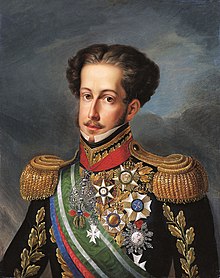





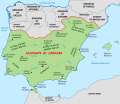


![Image 9Maios celebration in Madeira island [1] (from Culture of Portugal)](https://upload.wikimedia.org/wikipedia/commons/thumb/e/e1/2011-03-05_03-13_Madeira_045_Santana_%285543431418%29.jpg/120px-2011-03-05_03-13_Madeira_045_Santana_%285543431418%29.jpg)










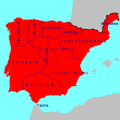

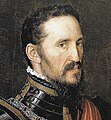










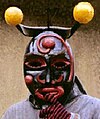








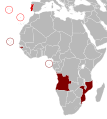







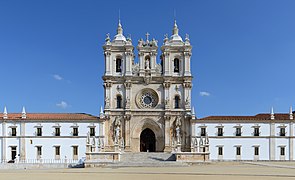

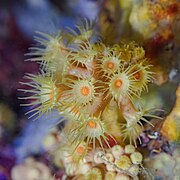




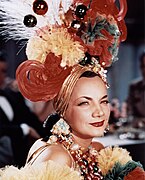

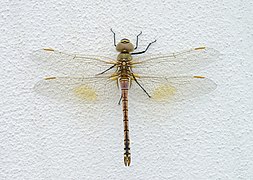
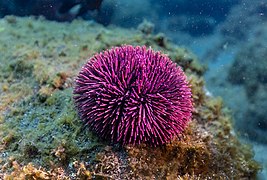
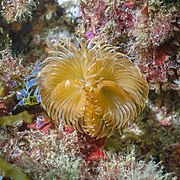
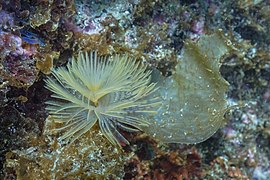
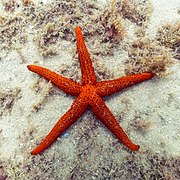


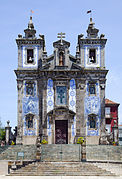
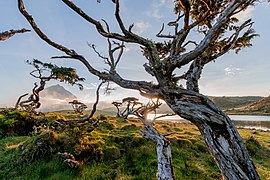


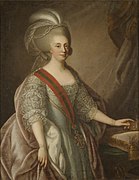
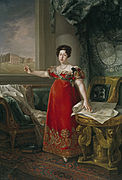



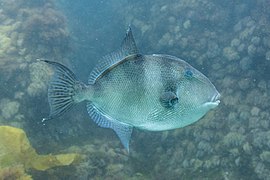
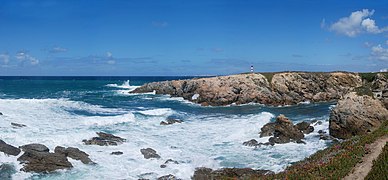

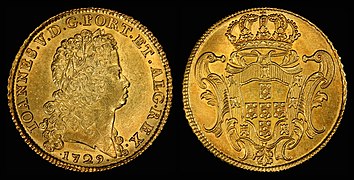


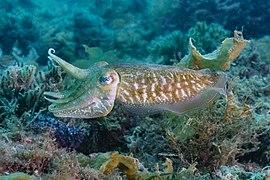
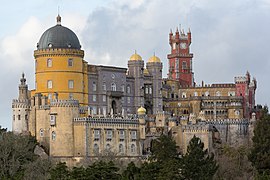
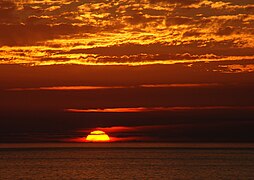
























Recent Comments